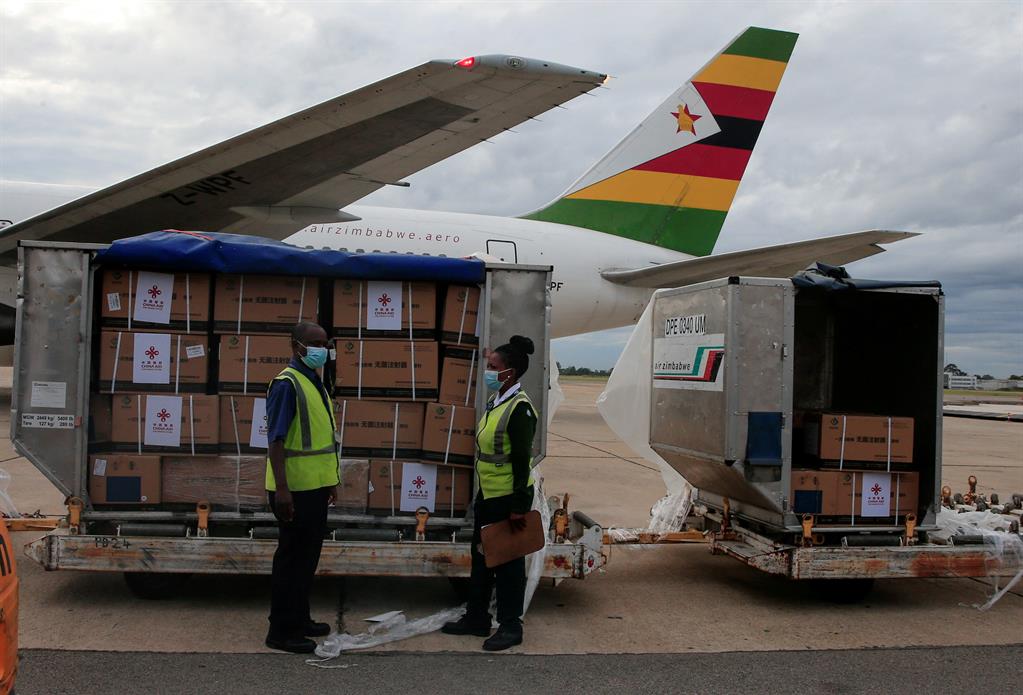Vaccine equity a must to end Covid
Only 7% of the population has been fully vaccinated in Africa.
Vaccine equity is the best way to get out of the current pandemic phase of the coronavirus epidemic, the world's top public health experts said in a panel at Davos on Tuesday.
Talking about the vaccination gap at the World Economic Forum's virtual Davos Agenda conference, World Health Organization's (WHO) Emergencies Director Mike Ryan said that over half of the world's population has received both doses of a Covid-19 vaccine, but only 7% of the population has been fully vaccinated in Africa.
"The problem is we are leaving huge swathes of the world behind. But vaccines are absolutely central. There is no way out of the pandemic right now without vaccines as the central strategic pillar."
The discovery of the Omicron variant in southern Africa has heightened claims that low inoculation rates can encourage viral mutations, which can then spread to countries where rates are much higher.
John Nkengasong, director of the Africa Centres for Disease Control, said it was "unacceptable" that Africa was lagging so far behind other countries in vaccination and called it 'collapse of global cooperation and solidarity'
George Washington is seen with a printed medical mask on a one-dollar bill reflected in a drop on a syringe needle in this illustration taken November 9, 2020.
George Washington is seen with a printed medical mask on a one-dollar bill reflected in a drop on a syringe needle in this illustration taken November 9, 2020.
"The only way to prevent other variants challenging the global efforts and advances we have seen is to vaccinate on scale, including Africa," said John Nkengasong.
Seth F. Berkley, chief executive of vaccine alliance Gavi, said that although global vaccine supply through COVAX faced initial hurdles like export bans, vaccine nationalism and companies' not meeting their dose requirements, things are slowly coming back on track.
"We expect the next billion doses to take between four to five months versus a year...the challenge is to make sure every country is ready to receive them."
The head of Africa's top public health body said African countries are not facing vaccine hesitancy but looking at logistics issues that need to be addressed.
"Greater co-operation is the route to ending this pandemic, whether we end it in 2022 or 2023."-Reuters
Talking about the vaccination gap at the World Economic Forum's virtual Davos Agenda conference, World Health Organization's (WHO) Emergencies Director Mike Ryan said that over half of the world's population has received both doses of a Covid-19 vaccine, but only 7% of the population has been fully vaccinated in Africa.
"The problem is we are leaving huge swathes of the world behind. But vaccines are absolutely central. There is no way out of the pandemic right now without vaccines as the central strategic pillar."
The discovery of the Omicron variant in southern Africa has heightened claims that low inoculation rates can encourage viral mutations, which can then spread to countries where rates are much higher.
John Nkengasong, director of the Africa Centres for Disease Control, said it was "unacceptable" that Africa was lagging so far behind other countries in vaccination and called it 'collapse of global cooperation and solidarity'
George Washington is seen with a printed medical mask on a one-dollar bill reflected in a drop on a syringe needle in this illustration taken November 9, 2020.
George Washington is seen with a printed medical mask on a one-dollar bill reflected in a drop on a syringe needle in this illustration taken November 9, 2020.
"The only way to prevent other variants challenging the global efforts and advances we have seen is to vaccinate on scale, including Africa," said John Nkengasong.
Seth F. Berkley, chief executive of vaccine alliance Gavi, said that although global vaccine supply through COVAX faced initial hurdles like export bans, vaccine nationalism and companies' not meeting their dose requirements, things are slowly coming back on track.
"We expect the next billion doses to take between four to five months versus a year...the challenge is to make sure every country is ready to receive them."
The head of Africa's top public health body said African countries are not facing vaccine hesitancy but looking at logistics issues that need to be addressed.
"Greater co-operation is the route to ending this pandemic, whether we end it in 2022 or 2023."-Reuters




Kommentaar
Republikein
Geen kommentaar is op hierdie artikel gelaat nie